
Libythea lepita, the common beak, is a butterfly that belongs to the Libytheinae group of the brush-footed butterflies family. It is found from southern India to Japan and its larval food plants include members of the Cannabaceae, particularly in the genera Celtis and Trema.

Miletus symethus, the great brownie, is a small butterfly found in India that belongs to the lycaenids or blues family. The species was first described by Pieter Cramer in 1777.
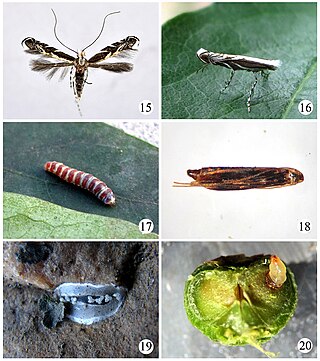
Epicephala relictella is a moth of the family Gracillariidae. It is known from the Russian Far East, China and Korea.
Epicephala spinula is a moth of the family Gracillariidae, one of the most primitive groups of ditrysian "micromoths". Within its family, it belongs to the subfamily Gracillariinae. Even though it was first scientifically studied in 1929, for many decades the specimens of this moth were mistaken for the related Australian species E. colymbetella, and their distinctness was only realized in 1986. It is found on the Marquesas Islands, where it occurs at least on Nuku Hiva, Ua Pou, and Fatu Hiva, and though little-known it is apparently not uncommon. The holotype specimen, a female, is USNM 100839.

Epicephala microcarpa is a moth of the family Gracillariidae first described by Hou-Hun Li in 2015. It is found in the Chinese provincies of Guangxi and Hainan and in Mumbai, India.
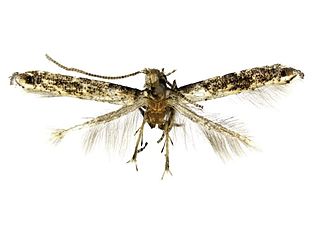
Epicephala laeviclada is a moth of the family Gracillariidae first described by Hou-Hun Li in 2015. It is found in the Chinese provinces of Guangxi and Hainan.
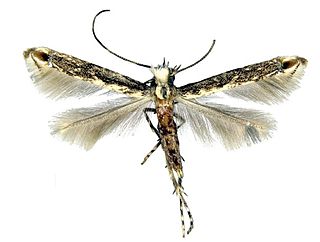
Epicephala tertiaria is a moth of the family Gracillariidae first described by Hou-Hun Li in 2015. It is found in the Chinese provinces of Guangdong and Guangxi.

Epicephala impolliniferens is a moth of the family Gracillariidae. It is found in China (Hainan).
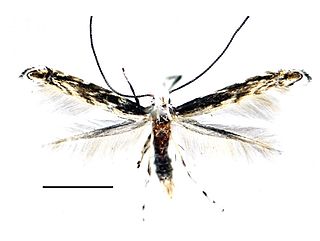
Epicephala camurella is a moth of the family Gracillariidae. It is found in China (Hainan).

Epicephala angustisaccula is a moth of the family Gracillariidae. It is found in China (Hainan).

Hieromantis rectangula is a moth of the Stathmopodidae family. It is found in China.

Hieromantis arcuata is a moth of the Stathmopodidae family. It is found in China.
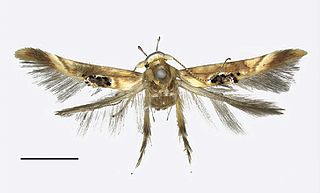
Hieromantis puerensis is a moth of the Stathmopodidae family. It is found in Yunnan, China.
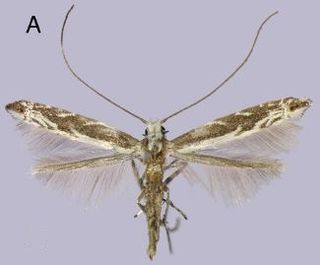
Epicephala anthophilia is a moth of the family Gracillariidae. It is found on a few islands with high elevation in the Ryukyu Archipelago (Amami Island and Okinawa Island). The host plant, Glochidion acuminatum is distributed throughout Southeast Asia from southern Japan to India, so this species is likely to be found in other parts of the host plant's range.

Epicephala lanceolatella is a moth of the family Gracillariidae. It is found on the Ryukyu Archipelago.

Epicephala perplexa is a moth of the family Gracillariidae. It is found on the Ryukyu Archipelago.
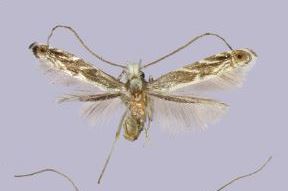
Epicephala obovatella is a moth of the family Gracillariidae. It is found in the warm temperate to subtropical regions of Japan and in Taiwan.
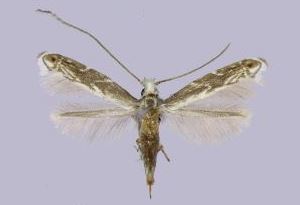
Epicephala corruptrix is a moth of the family Gracillariidae. It is found on the Ryukyu Archipelago.
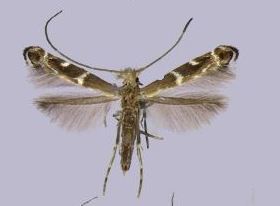
Epicephala anthophilia is a moth of the family Gracillariidae. It is found on the Ryukyu Archipelago.
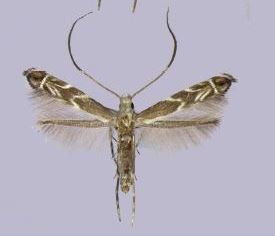
Epicephala nudilingua is a moth of the family Gracillariidae. It is known from three populations in Tochigi, Tokyo and Oita Prefecture, Japan. The host plant is widespread in the temperate regions of Japan and other parts of East Asia, so the species is likely to be found elsewhere.














